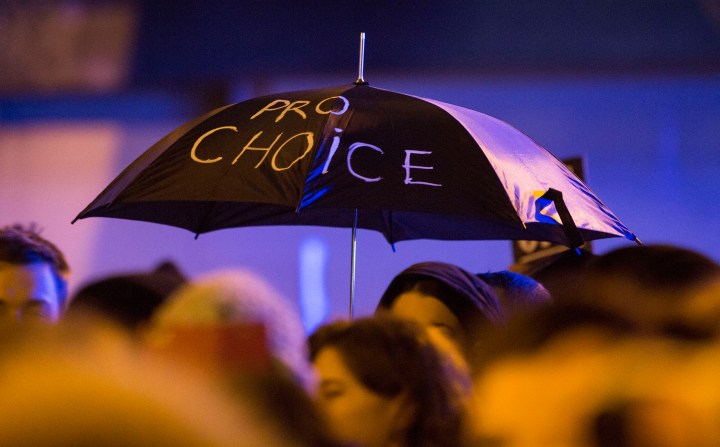SPOTLIGHT OP-ED
Safe abortions: Government displays lack of urgency

In South Africa, women’s sexual and reproductive health rights are often glorified based on our progressive laws. The reality, however, is that women’s sexual and reproductive health rights are routinely undermined in the absence of accurate information on safe abortion services.
It is troubling to compare to what extent the sexual and reproductive health rights of men and women in South Africa are guaranteed. Patriarchy and traditional attitudes towards sexuality and gender roles have often resulted in an imbalance between men and women’s claims to their sexual and reproductive health rights. This helps to explain why men are freer to enjoy and feel entitled to their sexual and reproductive health rights compared to women, who continue to fight to have their sexual and reproductive health rights realised.
In some cultures in South Africa there are practices whereby older married women will provide the bride-to-be with marital advice that will typically include how to satisfy her husband sexually, with no regard for her own satisfaction. There are still notoriously low conviction rates for marital rape in South Africa. The practice of lobola suggests to some men that they have effectively paid for their wives and therefore they are entitled to demand sex. Although not as common today, female genital mutilation is still practised in some places.
In some respects, the rebellion of the modern woman, marked by the feminist movement, has been hugely successful in counteracting patriarchy. Despite the surge of feminist defiance of patriarchy, many women are still subjected to judgment and undue regulation for having casual sex or sex with multiple partners.
It is tempting to consider the limited distribution of female condoms as a feature of patriarchy. It suggests that decisions around sex ultimately lie with men. What business does a woman have carrying condoms?
The difficulty for women trying to claim their right to abortion is especially severe.
In South Africa, women have a legal right to abortion. The Constitution guarantees every person’s sexual and reproductive rights and the Choice on Termination of Pregnancy Act specifically gives women a right to safe abortion services. However, despite these legal provisions, access to safe abortion services in South Africa remains limited.
The World Health Organisation identifies stigma, stock-outs, conscientious objection by healthcare providers and restricted availability of services as the major barriers to safe abortion access. In addition to these barriers, it is increasingly evident that a lack of information and education significantly hinders safe abortion access for South African women.
When talking about securing the right to safe abortion, the deputy chair of the Sexual and Reproductive Justice Coalition, Dr Tlaleng Mofokeng, points out the extent of this problem in her statement: “You can’t fight for a right you don’t know you have.” To the Department of Health perhaps it is necessary to say, “You can’t claim that safe abortion services are available when women don’t know where these services are.”
For a number of provincial health departments, including the Eastern Cape, and North West, it has not been a priority to publicise any information regarding which facilities are designated for safe abortion services. In other provinces, including Gauteng, lists on where to access these services have been published but the information is often wrong and misleading.
One such list published by the Gauteng Department of Health, which circulated on social media, listed the facilities providing abortion services but most of the contact numbers did not exist. When SECTION27 enquired about abortion services at the listed facilities, several did not offer abortion up to the number of weeks the safe abortion list indicated.
The shortage and inaccuracy of information on safe abortion services has led to a situation where non-profit organisations try to compensate for the ineffectiveness of government. In Gauteng, SECTION27 and the Treatment Action Campaign have been involved in efforts to resolve the shortcomings of available information on abortion services. The organisations’ correspondence with the Gauteng Department of Health (GDoH) since May has not resulted in more credible information on where to access these services. This is because the department still provides lists of facilities that do not reflect the services actually provided by nurses at healthcare facilities.
It is no surprise that the demand for illegal abortion services remains high. Advertisements for “quick abortion in 30 minutes” are hard to miss on streetlight posts and traffic lights. Compare this to the considerable effort required in finding out where to access safe abortion services. For the women brave enough to ignore the stigma often associated with abortion when they access public healthcare facilities, it can often seem like feeling their way through a lucky packet unsure of what, if any, information on abortion services they will get and how credible it will be.
Securing access to safe abortion is needed to prevent death and complications resulting from women and young girls making use of illegal and unsafe backstreet abortion services. Increased access to safe abortion would reduce the public health expenditure associated with illegal abortion services. Backstreet abortion services often mean that women and young girls have to seek emergency post-abortion care services from the formal health sector. While it is generally understood that the promotion of safe abortion can save lives, the government continues to display a lack of urgency.
It is upsetting to confront the fact that whenever women attempt to exercise their sexual and reproductive health rights, it almost always requires a march before their needs are acknowledged. To compare how frequently men are required to do the same to secure their sexual and reproductive health rights, is telling. DM
This article first appeared in Spotlight.
Masipa is a communications officer at SECTION27
















 Become an Insider
Become an Insider